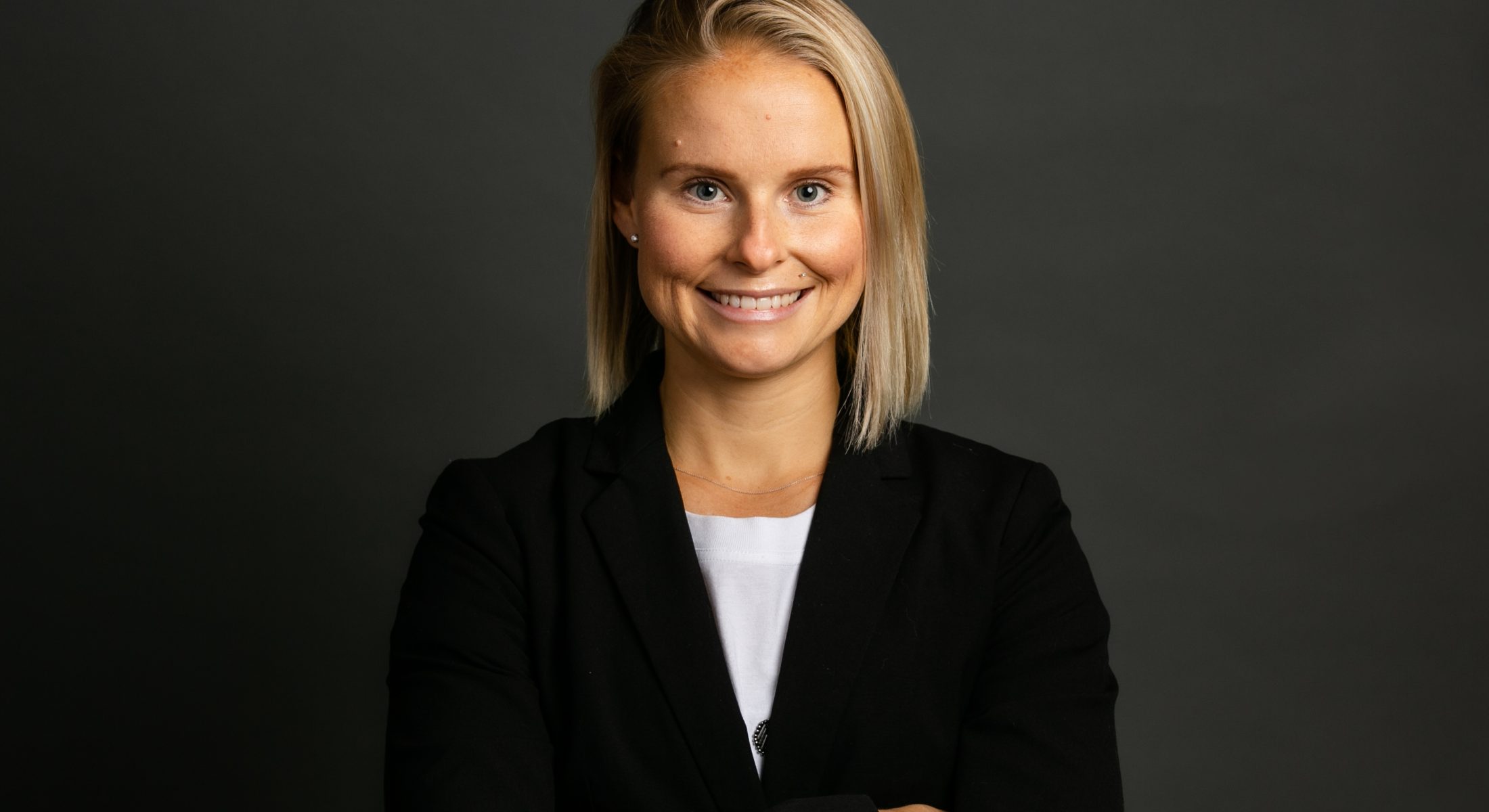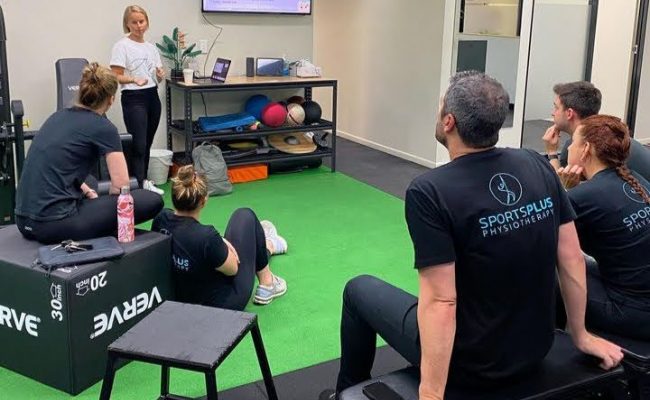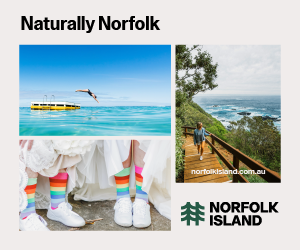Local Queer Icons - LGBTQIA+ Healthcare Researcher Dr. Megan Ross


Brisbane based Dr. Megan Ross (she/her) is a cisgender queer woman and a researcher specifically focusing on the LGBTQIA+ community in primary care settings. Megan is dedicated to promoting the inclusion and understanding of the queer community in the field of physiotherapy and healthcare more broadly, and believes that “the most important aspect of creating a safe, inclusive and affirming experience for the LGBTQIA+ community is not about being an expert in LGBTQIA+ health, but is being accepting, welcoming and seeing the whole person who is in front of you.”
As a gymnast throughout primary and high school and someone involved in several team sports, Dr. Ross regularly saw a physiotherapist; through her experiences as an athlete she became fascinated by the human body and musculoskeletal anatomy. Excelling academically, Megan contemplated medicine, but driven by interest in the musculoskeletal system and rehabilitation combined with first-hand experience in injury management, pursued physiotherapy upon graduation.
Starting as a physiotherapist in a private musculoskeletal clinic, Megan first became aware of the need for research into the LGBTQIA+ community and physiotherapy. The pervasive cis- and heteronormativity of the profession became apparent through conversations with colleagues and patients. After some time working as a clinician, Dr. Ross decided to pursue a PhD at The University of Queensland. It was during this time that the true weight of the issue was highlighted:
“I experienced heteronormative assumptions (i.e. patients or participants assuming I was heterosexual) in general conversation. While for me, this was mildly irritating or exasperating, I started to wonder how other members of the queer community experienced this, and how it played out in broader physiotherapy practice. Like any academic, I went to look at the published literature, and I was surprised to find that no one had published any articles about physiotherapy for the LGBTQIA+ community.”
Dr. Ross then began additional research to fill the gap in the literature. In 2019, Megan published the first paper investigating experiences of physiotherapy for LGBTQIA+ folks. Since PhD completion in 2020, Megan has continued with postdoctoral research at UQ and is now exploring experiences of and access to healthcare for the LGBTQIA+ community beyond physiotherapy. Dr Ross elaborates that “for the LGBTQIA+ community, multiple and intersecting factors influence health and wellbeing, through cis/heteronormative social and systemic structures that influence access to health care, experiences when interacting with the health system and ultimately contribute to disparities in physical and mental health for our community Health disparities are unfair, avoidable and preventable differences that prevent marginalised and oppressed communities achieving optimal health status and outcomes.” Because health is a sum of physical, mental, and social factors (World Health Organisation), Dr. Ross feels that the intersectional identities of LGBTQIA+ people – and the presence of cis and heteronormativity – often lead to challenges in accessing healthcare and maintaining overall wellbeing.
Dr. Ross also explains that while some groups within the LGBTQIA+ community are becoming more understood and accepted on a societal scale, other members of the community continue to face difficulties and exclusion: “The acceptance of gay and lesbian individuals has generally seen positive shifts, with increased visibility and legal recognition of same-sex relationships in many parts of the world. Social acceptance of, and attitudes or beliefs about trans and gender diverse folks has been more nuanced. While awareness and understanding of gender diversity has grown, a considerable amount of misinformation, lack of knowledge and discrimination remains. Transgender individuals face unique challenges, including cisnormative assumptions, discrimination, marginalisation, and exclusion, including within healthcare and health promoting activities and spaces. While efforts to promote inclusivity and understanding have gained momentum and led to positive changes in some spaces, there is still work to be done to ensure equity of access and acceptance of all members of LGBTQIA+ communities”
An important element of Dr. Ross’s work is the way she advocates for LGBTQIA+ inclusive in healthcare through not only published research but also by presenting at conferences and symposiums. Notably, she recently traveled to the United States to present an educational session at the American Physical Therapy Association Combined Sections Meeting. Dr. Ross explains the importance of promoting inclusivity in academic and professional spaces:
“The healthcare system is often cis/hetero/endo normative. This means that it assumes that everyone is cisgender, heterosexual and without variations in sex characteristics. Cis/hetero/endo normativity is interrelated with cis/hetero/endo sexism, stemming from the belief that cisgender, heterosexual and endosex people are considered more natural, real and preferred than non cis/hetero/endosexual people. This attitude and belief can lead to a lack of understanding and acceptance of the unique needs of the LGBTQIA+ community, and result in inadequate, stigmatised and inferior care. This foundation renders the unique health and wellbeing needs of the LGBTQIA+ community invisible, as well as their intersectional identities and lived experiences. This institutionalised normativity implicitly, or explicitly, treats some people as ‘immoral’ or ‘deviant’ and medicalises or pathologizes diverse sexual orientations, gender identities and variations in sex characteristics. This biomedical model that reinforces cis/hetero/endonormativity and the impact on health disparities for the LGBTQIA+ community is the reason it is important to challenge normativity in academic and professional spaces.”

Dr. Ross believes that her work will have an impact beyond making members of the LGBTQIA+ community feel more included and understood. Her work has reach beyond the field of physiotherapy, Dr Ross was recently awarded a Medical Research Future Fund to co-design an LGBTQIA+ affirming model of primary care with a multi-disciplinary team of colleagues, consumers and health professional organisations using a resource she developed with a Physiotherapy Research Foundation seeding grant. Megan explains that by developing “cultural competency,” health practitioners can be guided to assess their own unconscious biases and challenge the assumptions they make about others; this equips them to understand their own privilege and understand the intersectional identities of patients and colleagues in order to provide superior care. She elaborates:
“Access to professionals who have cultural competency, and a positive experience with inclusive practitioners can have impacts on future health seeking behaviours and downstream impacts on health outcomes. Health care professionals who have undertaken training in cultural responsiveness are taught the skills to help them understand the unique needs of people from diverse backgrounds. It aims to build awareness, knowledge and skills to practice in a culturally responsive way. In the original LGBTQIA+ affirming physiotherapy resource, as well as critical reflexivity and challenging privilege and assumptions, we have included components that facilitate skills in understanding the background of the patient, developing communication skills that are sensitive to the patient’s background, understanding their health beliefs and practices and strategies to address barriers to care. This training has benefits beyond the LGBTQIA+ community and is applicable for practitioners outside of the physiotherapy profession.”
It is critical to Dr. Ross that her research and advocacy not just benefit patients, but queer practitioners in cis/hetero/endo normative work environments. In 2022 she published a paper detailing the experiences of LGBTQIA+ physiotherapists, focusing on how their sexuality and gender identity impacted their professional and academic lives. Her team found that “queer physiotherapists also experience normativity (assumptions), stress and labour (doing the work, hiding or disclosing, educating others) and constrained ideals of professionalism (LGBTQIA+ identity being viewed as unprofessional). Physiotherapists talked about the value in being able to bring their whole, authentic self to work and the positive impact inclusive workplaces have on health and wellbeing. By teaching health professionals inclusive and affirming practice with patients, we hope these learnings transfer to interpersonal and interprofessional communication and relationships with colleagues.”
For LGBTQIA+ travellers, access to inclusive healthcare can be challenging on the road. Away from our usual practitioners whom we may feel comfortable with, it can be daunting to seek healthcare services in new locations. Dr. Ross explains that the availability of “safe, affirming and inclusive healthcare can vary significantly from one region to another.” There are ways to identify which healthcare providers are LGBTQIA+ inclusive, such as the use of “inclusive language and diverse images in brochures, websites, waiting rooms and in their intake forms.” Inclusivity statements or pride flags on a clinic’s website are another indicator of an inclusive practice. Dr. Ross says that “At the interpersonal level, inclusive care is delivered by clinicians who have greater knowledge of LGBTQIA+ health needs and the impacts of discrimination and stigma, as well as the skills to use inclusive language and provide person-centred care.” Through her work, she hopes to promote these inclusive and person-centred practices through health-related fields.
To learn more about Dr. Ross’s research, visit her UQResearchers Page, Google Scholar, or LinkedIn. Alternatively, follow her work along on Instagram.

